Knowledge regarding Human Papillomavirus Infection among female students in Kalutara District, Sri Lanka
Introduction: Human Papilloma Virus (HPV) infection is a significant public
health issue, particularly among young women who are at risk of developing
related complications. These complications can include cervical cancer, genital
warts, and other serious health problems that can have long-term effects. Therefore,
understanding the level of knowledge about HPV and its transmission is essential
for developing targeted educational and preventive strategies to mitigate these risks.
Objective: This study aimed to assess the knowledge regarding HPV infection
among female Advanced-Level students in Kalutara District, Sri Lanka.
Methodology: A descriptive cross-sectional study was conducted among 439
voluntarily consenting female Advanced-Level students in Kalutara District, Sri
Lanka. The data were collected using a self-administered questionnaire and were
analysed using descriptive statistics via IBM SPSS version 25. The total knowledge
scores ranged from 0-10 and categorised according to the Bloom’s cutoff as follows:
high knowledge (80%-100%), moderate knowledge (60%-79%) and low knowledge
(<59%). The ethical approval was obtained from the Ethics Review Committee of
KIU (KIU/ERC/22/083).
Results: Of the 439 participants, the majority of the participants were 18 years
(98.4%, n=432) and Buddhists (87.47%, n=384). Nearly half of the participants
(54.90%, n=241) have not heard of HPV infection. The majority of the participants
(81.32%, n=357) did not know the mode of transmission of HPV and their main
source of information was parents (28.02%, n=123). The total mean knowledge
score was 1.16±1.56 whilst most of the participants (98.63%, n=433) had low
level of knowledge regarding HPV infection and only 6 (1.37%) participants had
moderate knowledge whilst none of them had high level of knowledge.
Conclusion: The study concludes with a low level of knowledge regarding HPV
infection among female students in Sri Lanka. The study findings highlight the
current knowledge levels, which emphasize the importance of monitoring and
evaluating the impact of educational programs over time.
Keywords
Female students
,
Human Papilloma Virus
,
Knowledge
,
Sri Lanka



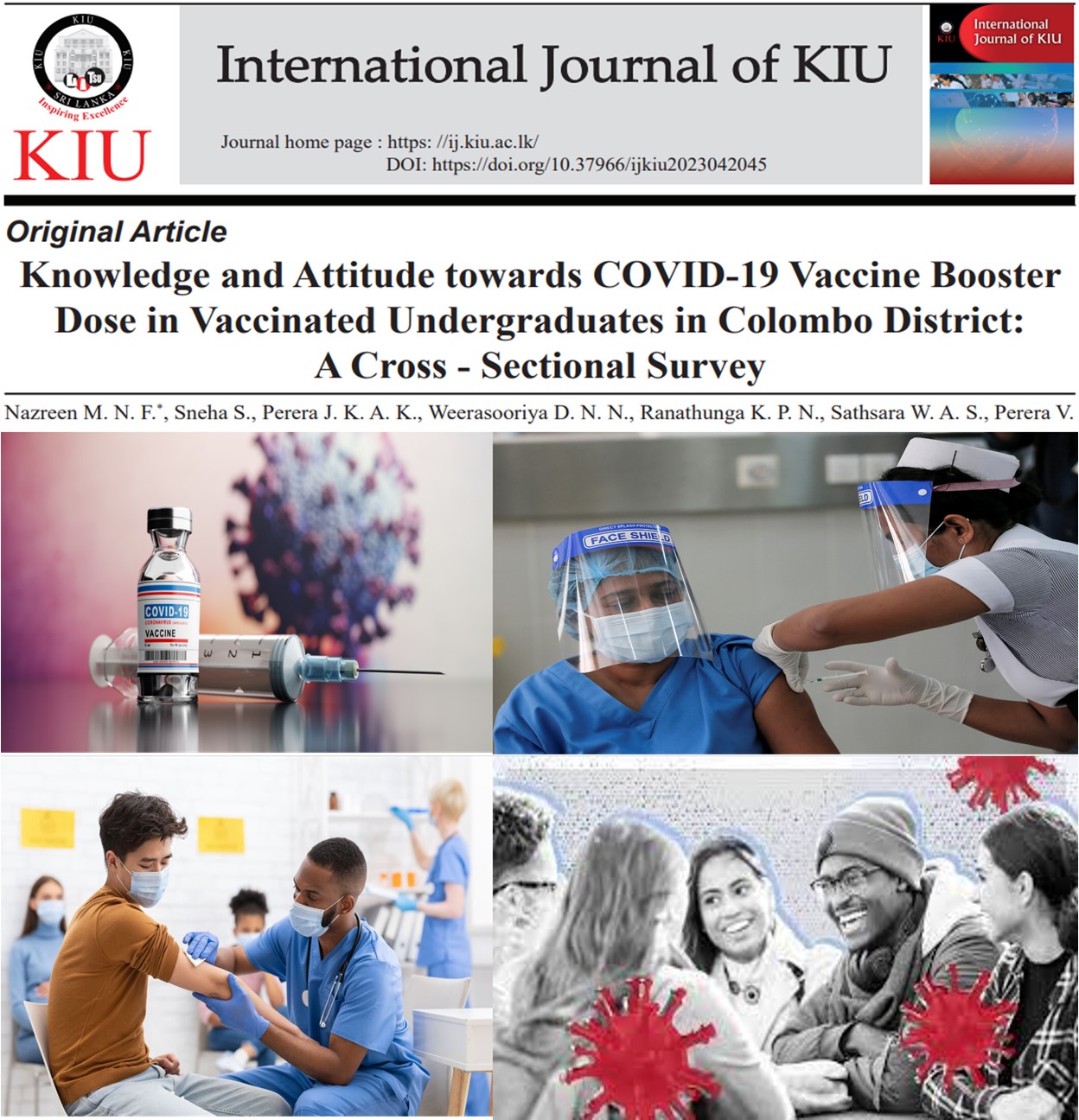
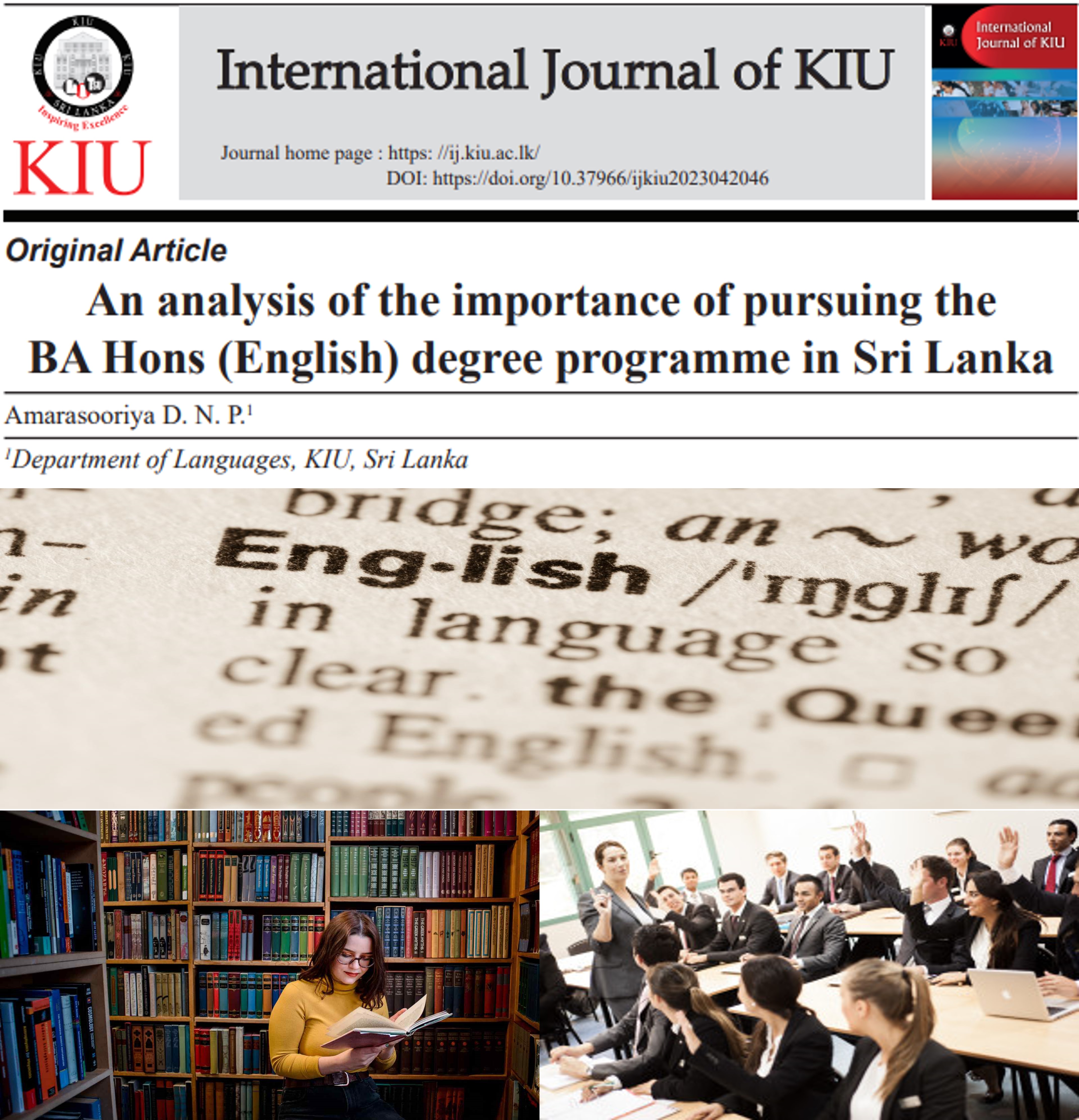

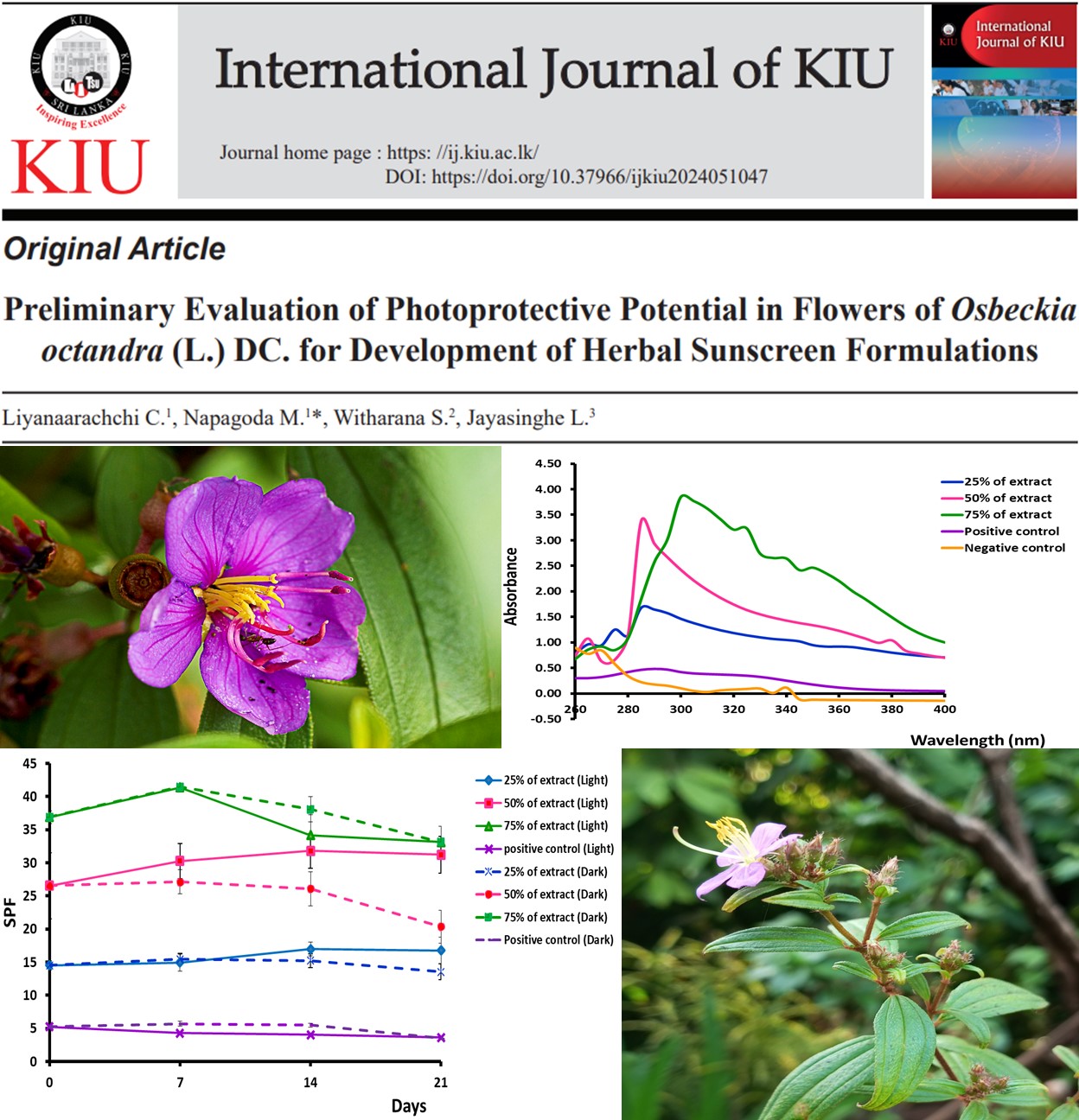
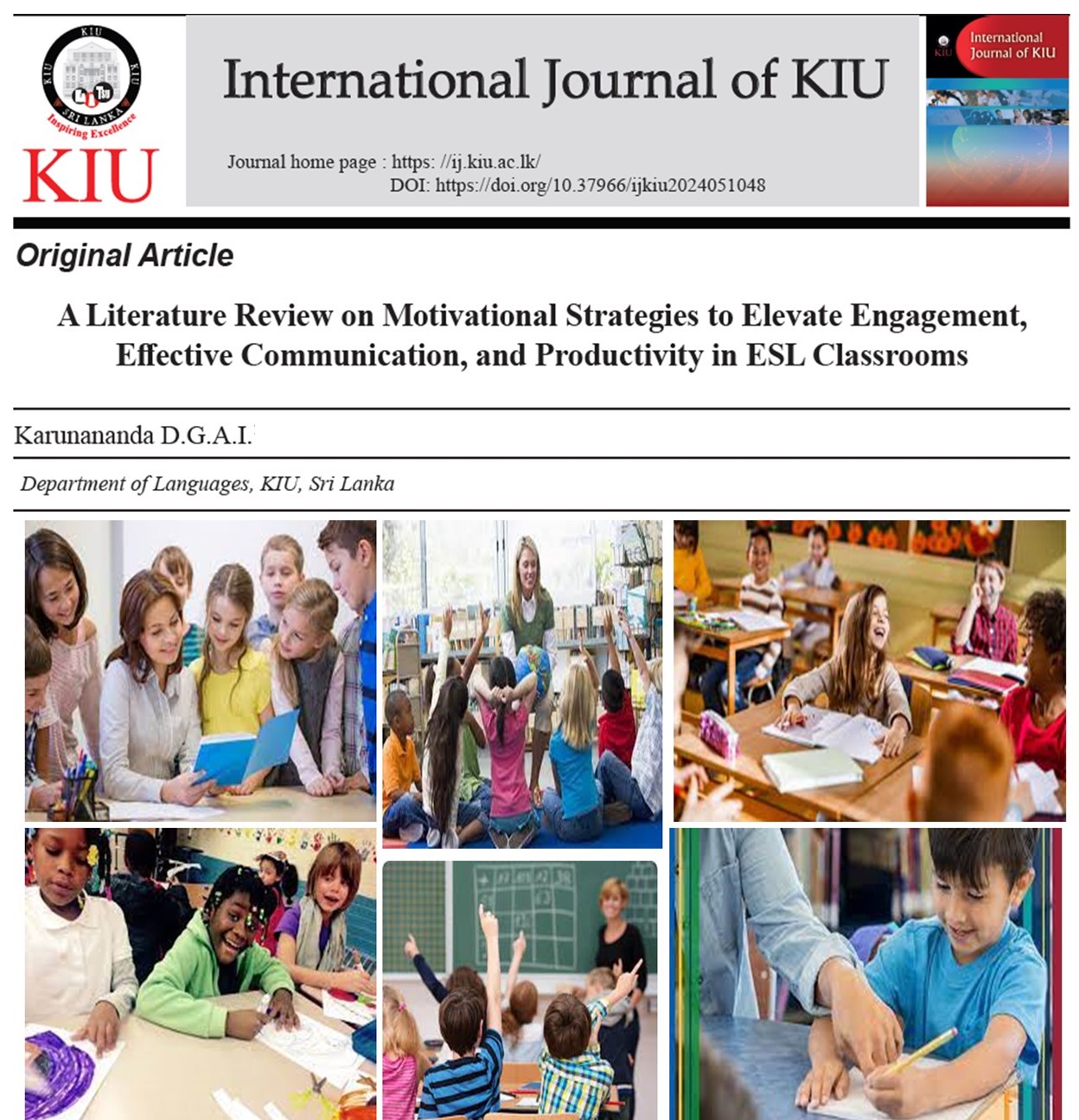
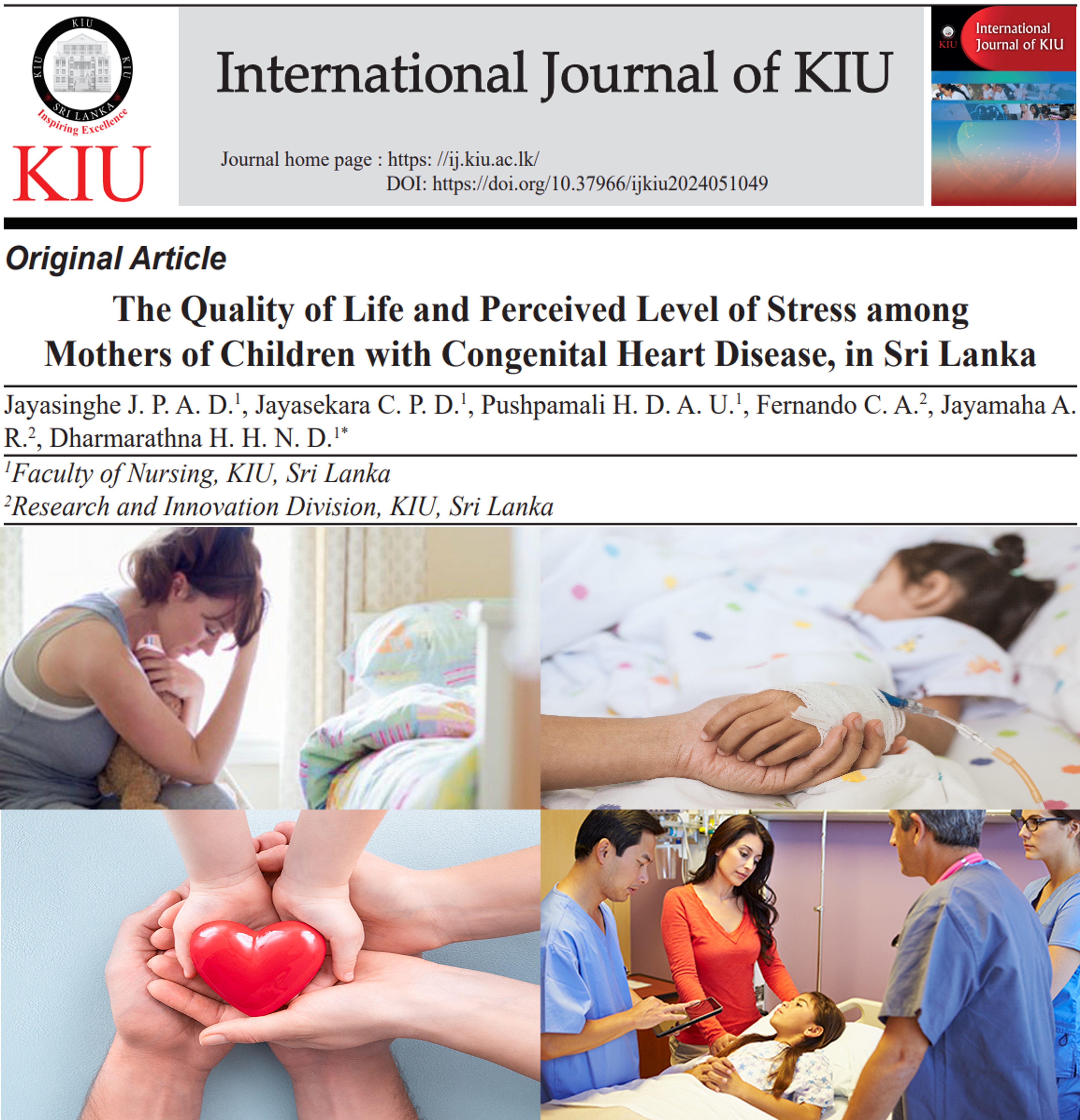
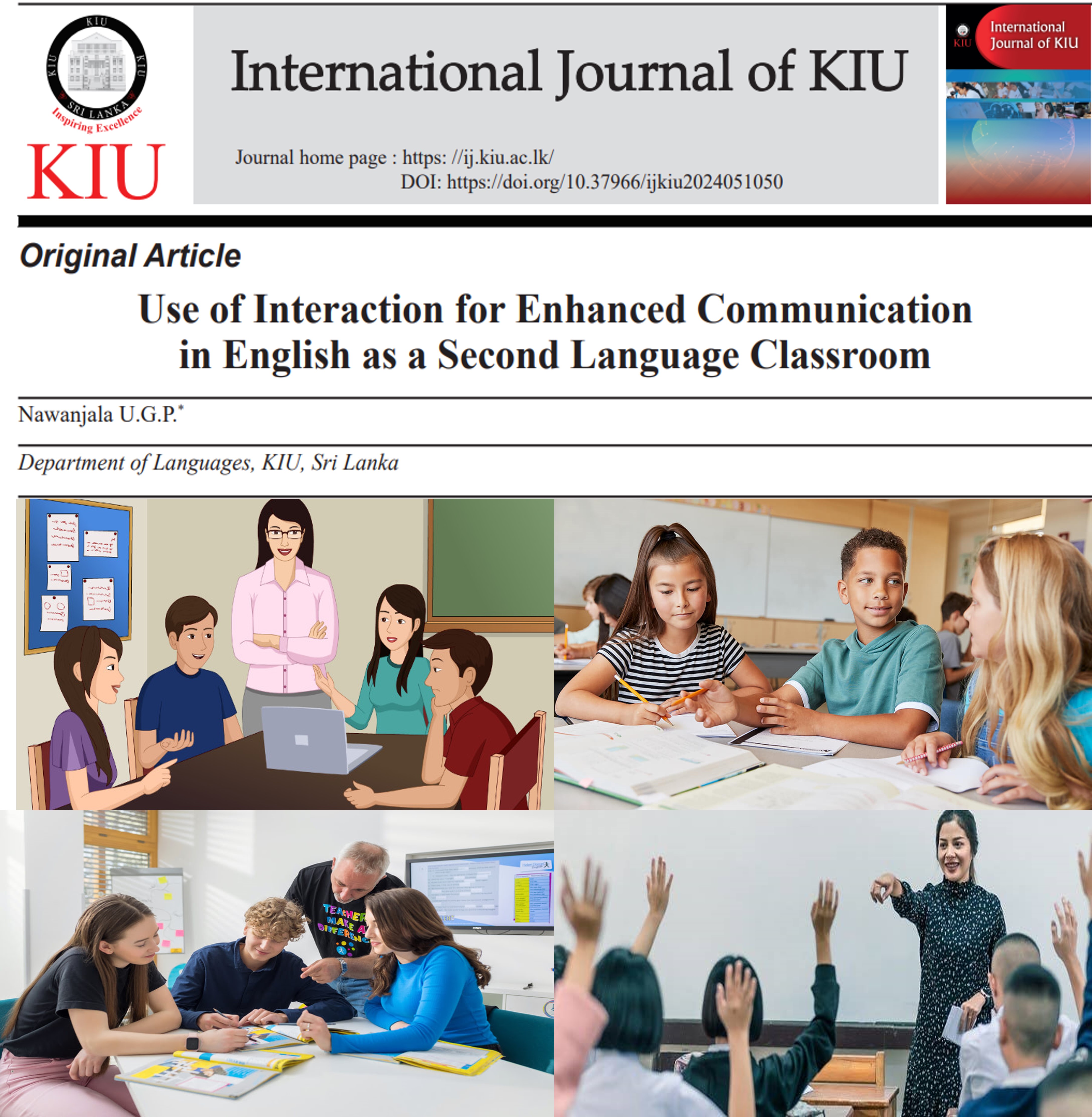
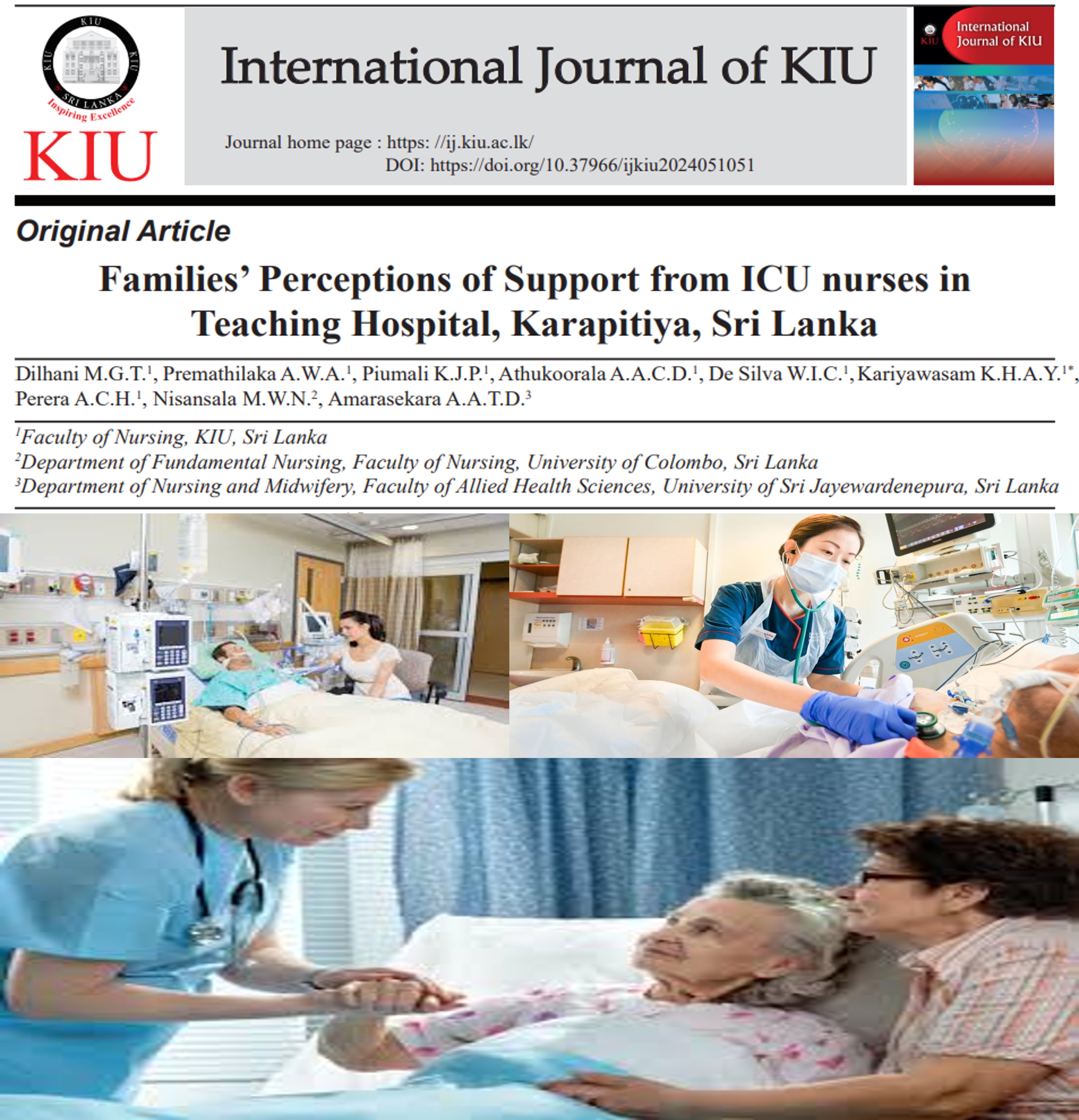

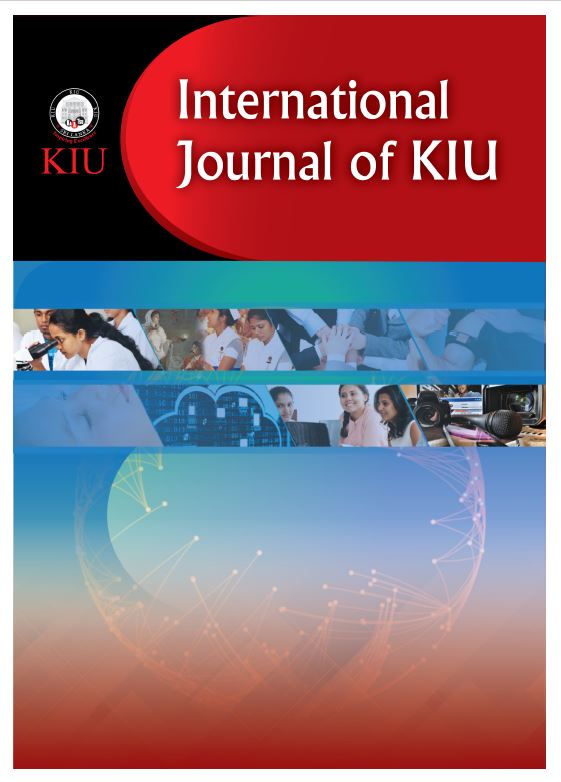
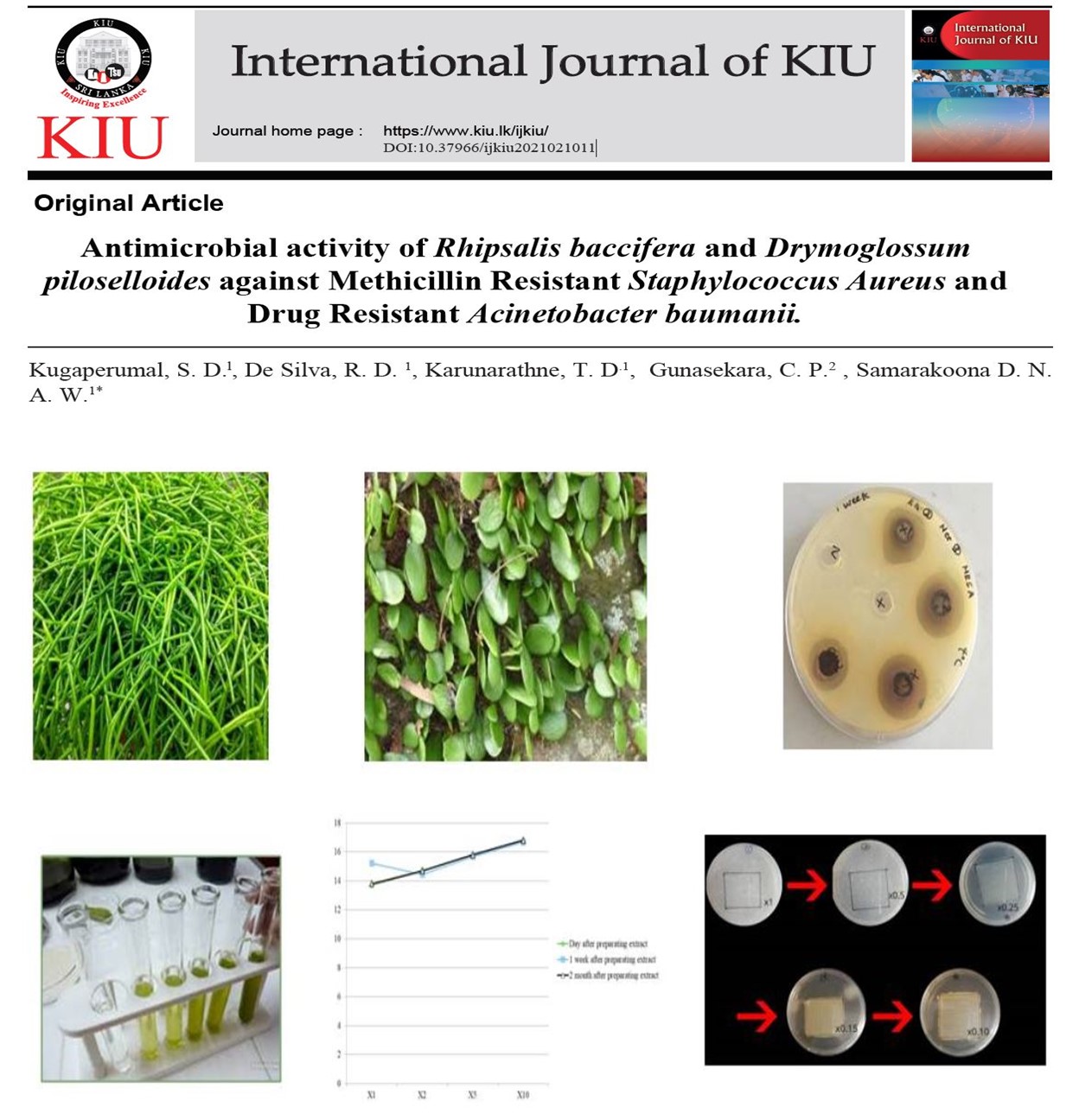
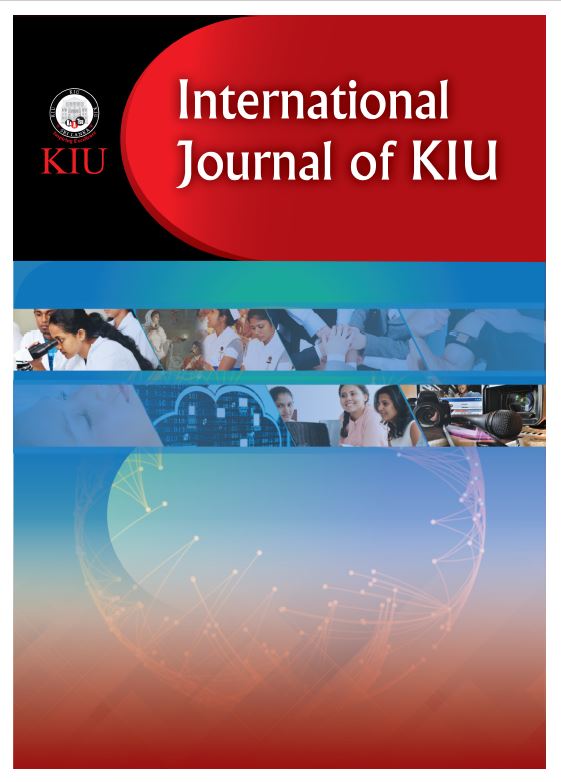
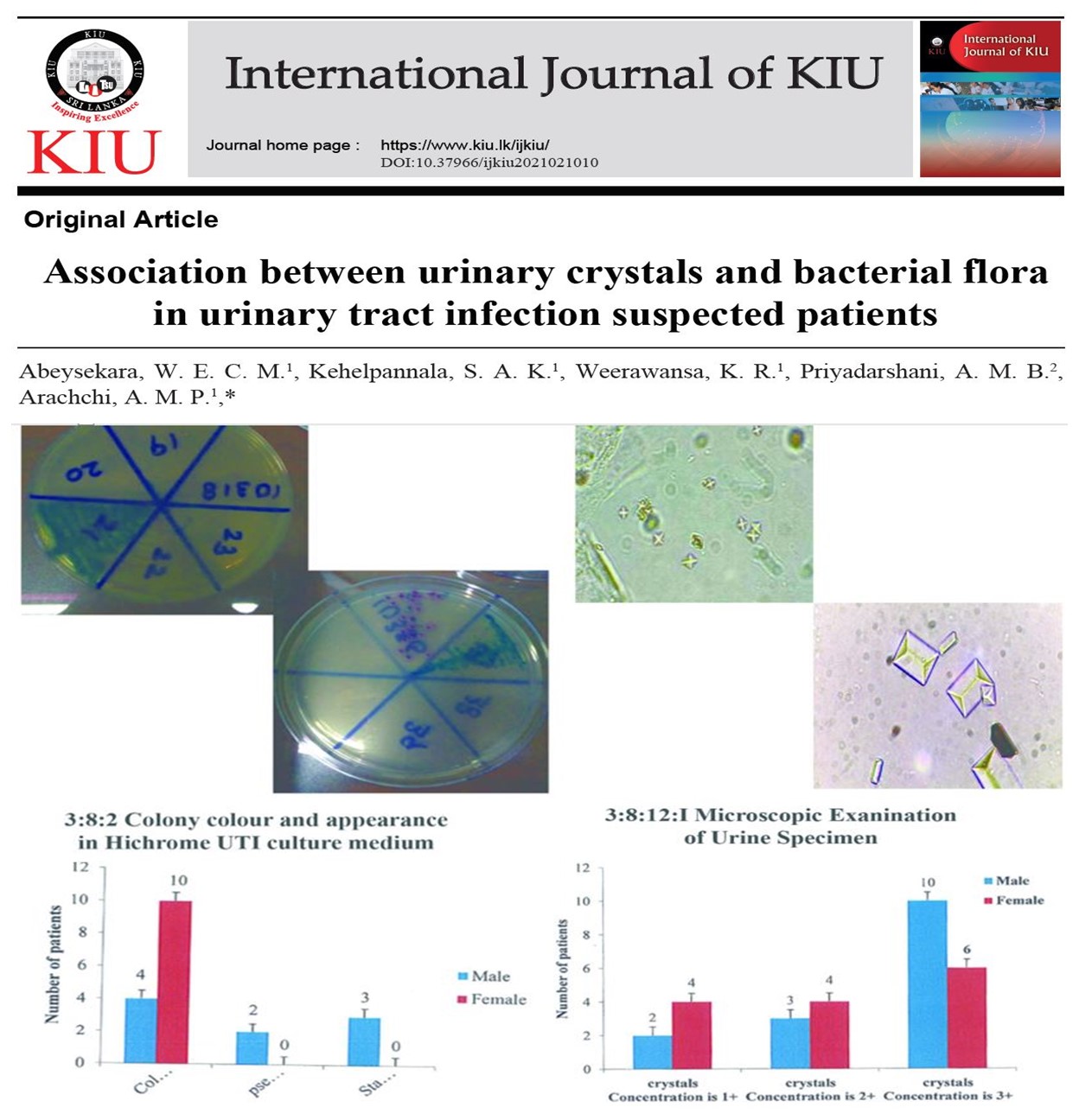
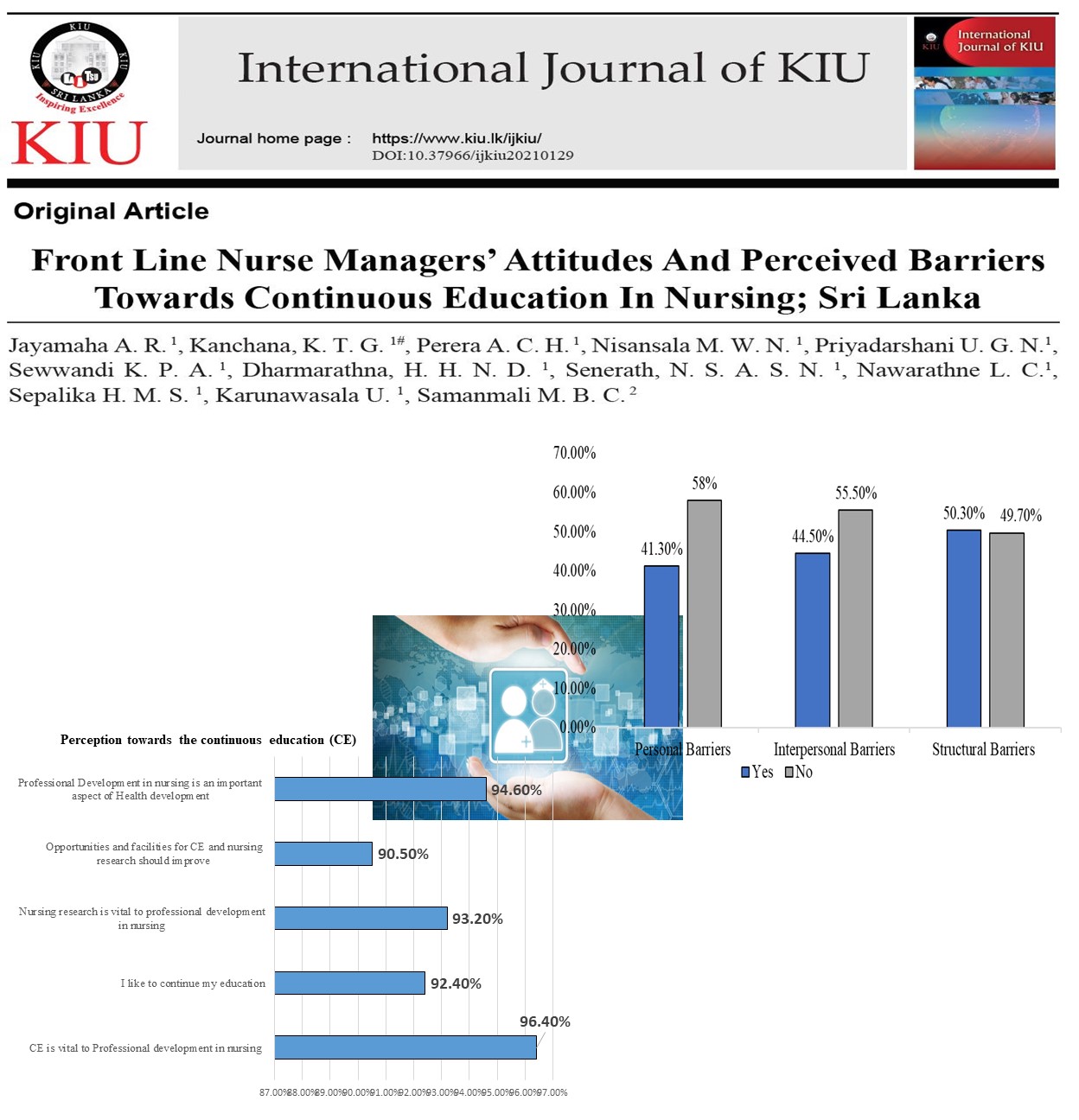
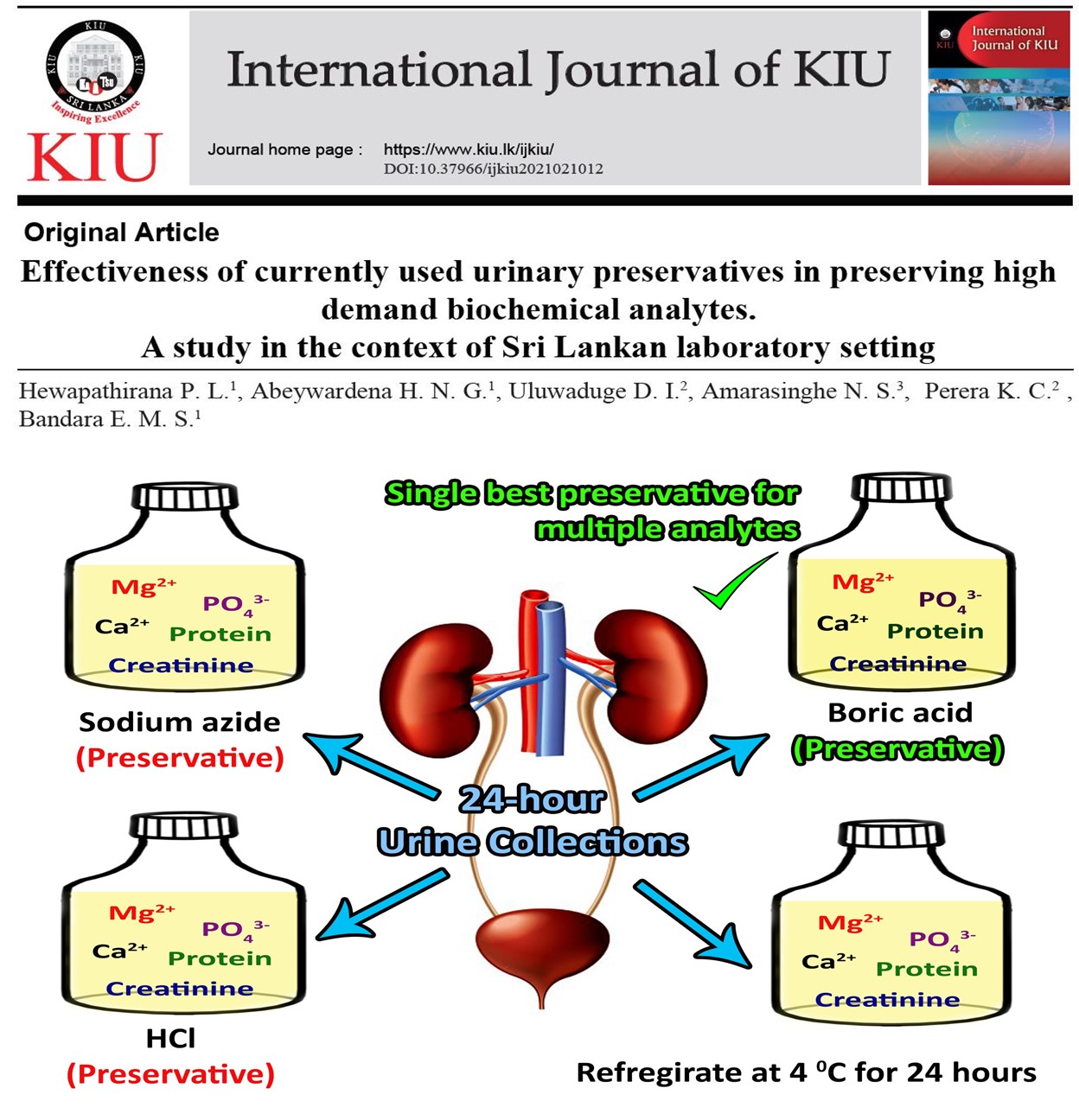
Related Articles